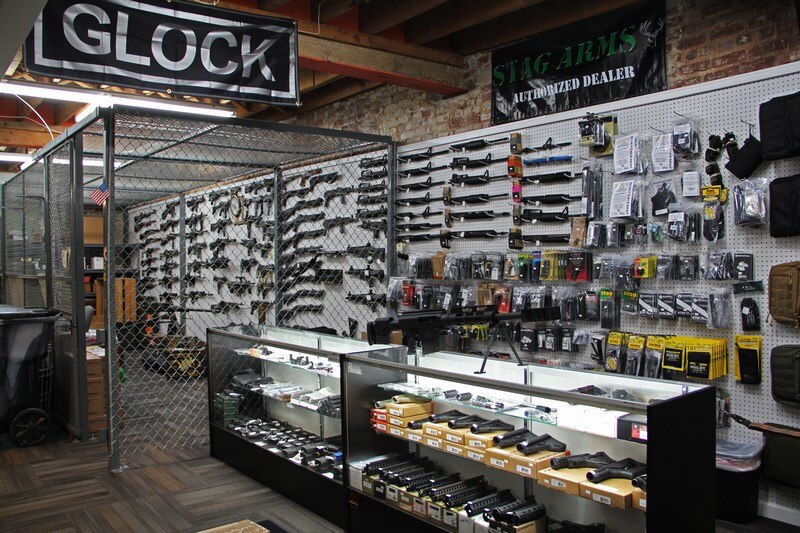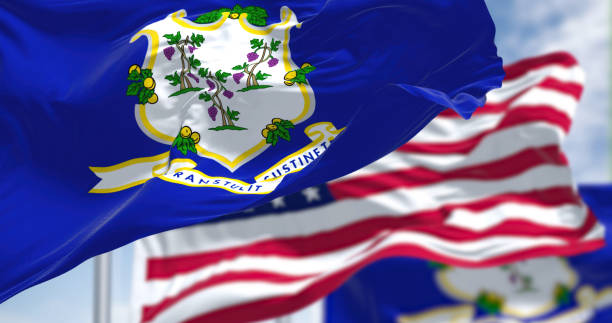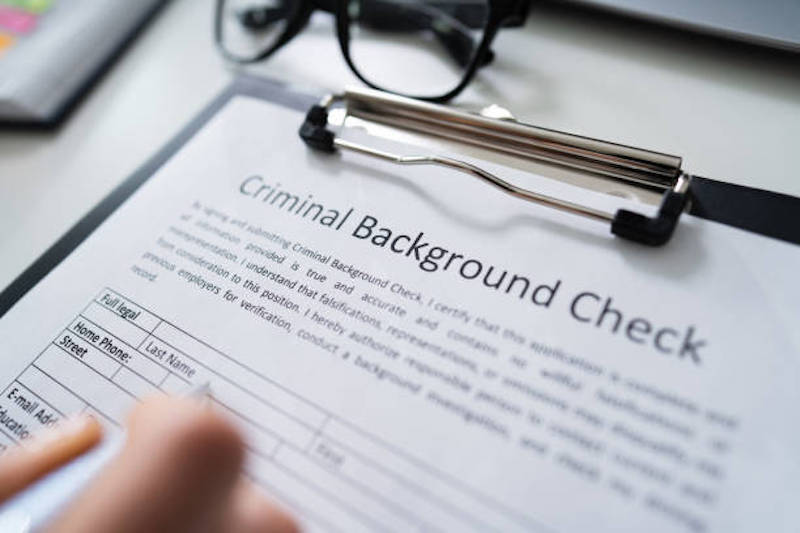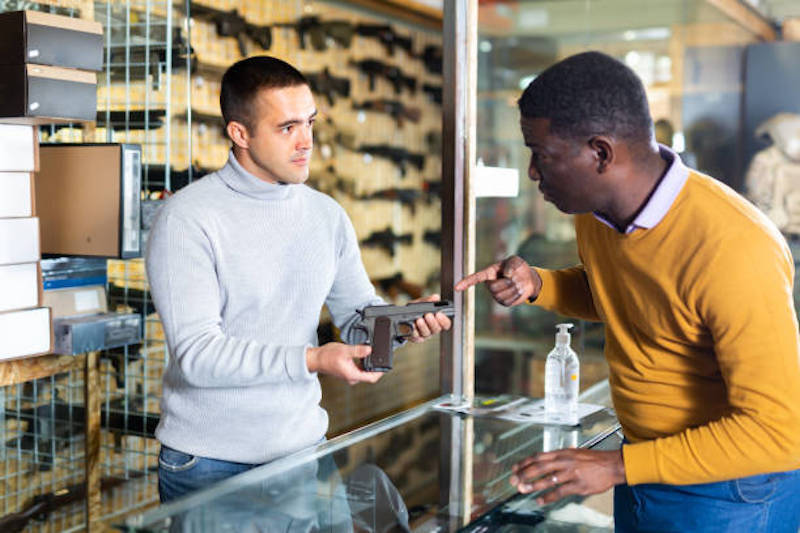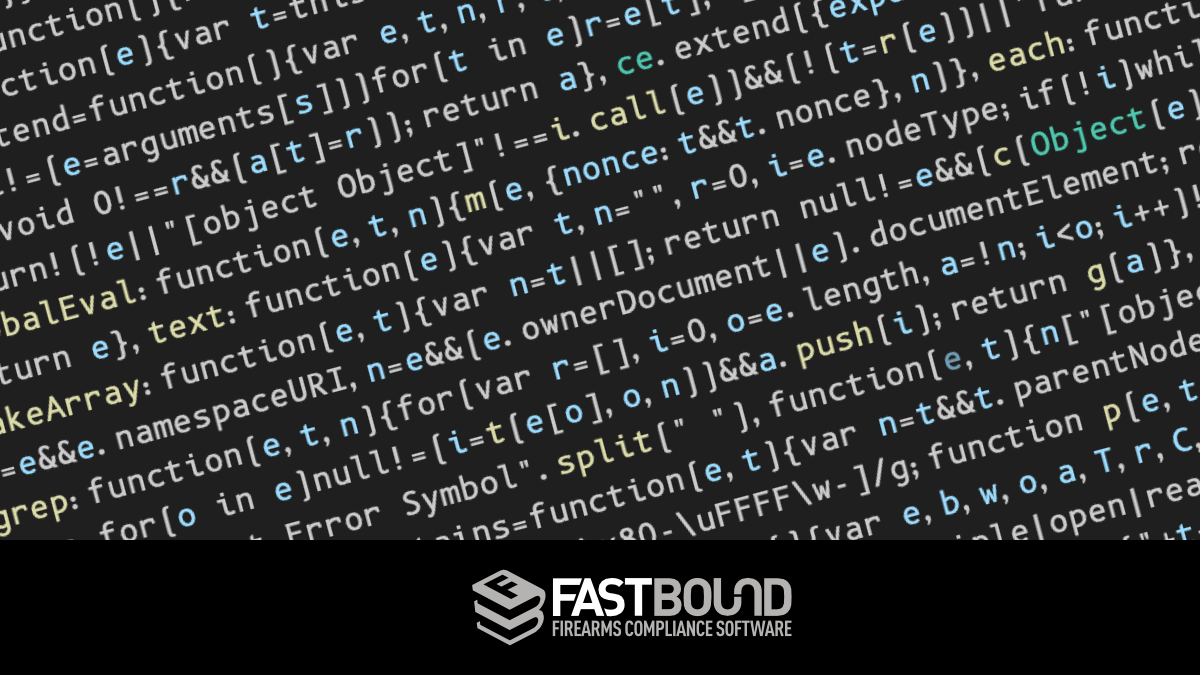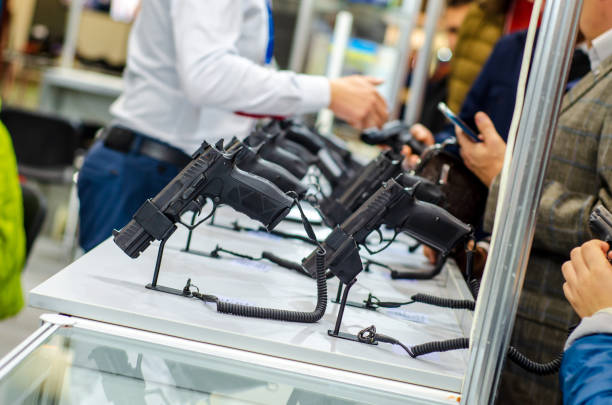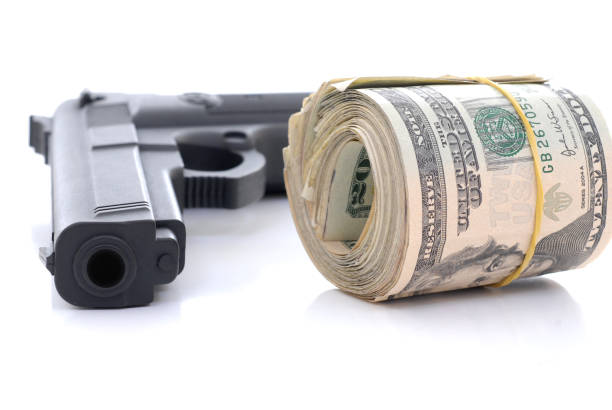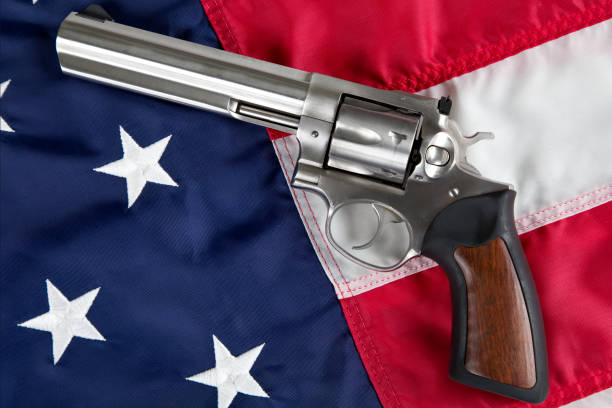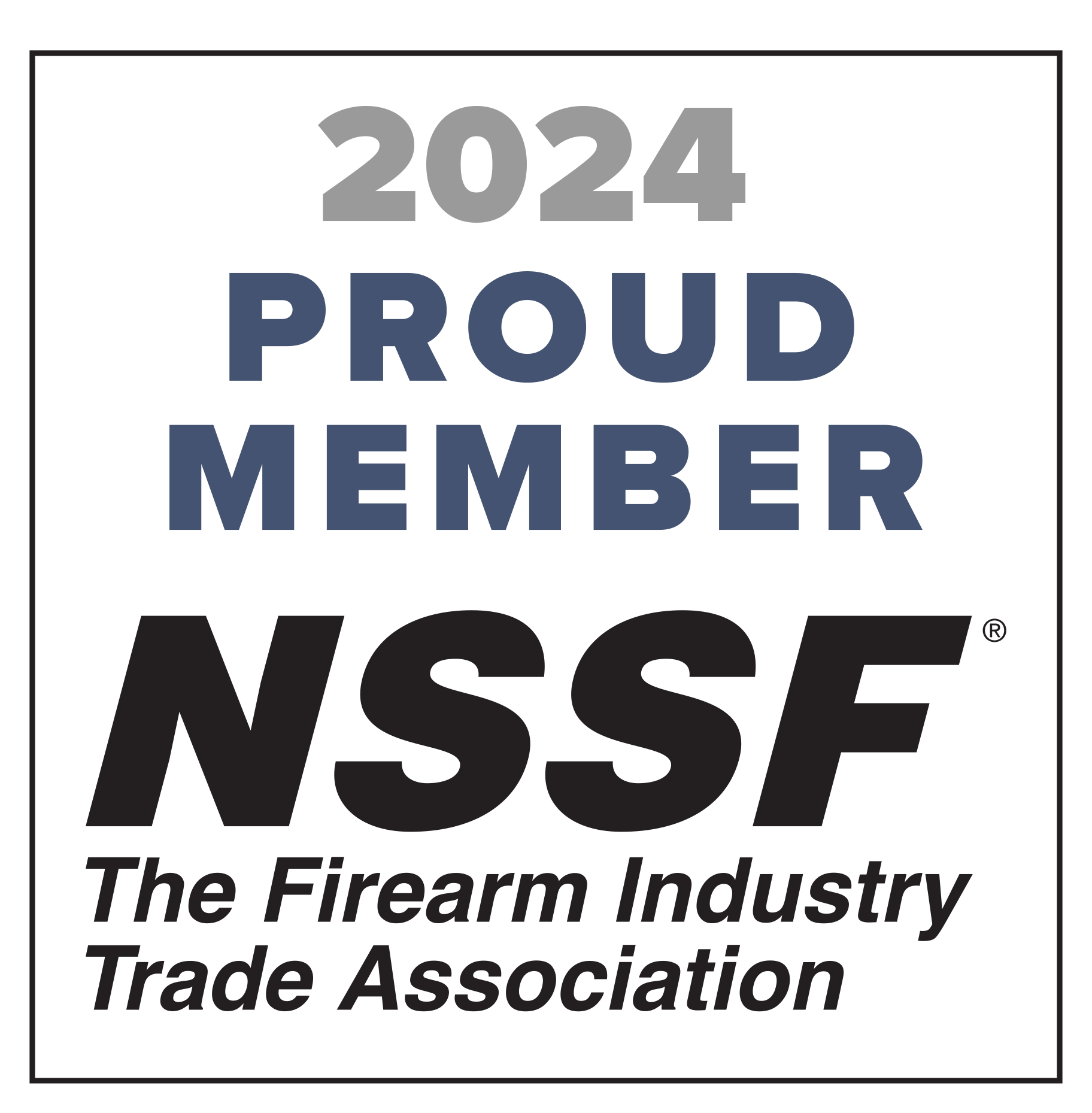A straw purchase occurs when someone buys a gun on behalf of someone who is legally prohibited from purchasing it themselves. Some of the common signs that suggest a straw purchase include inconsistencies in information, false information, and the buyer seems hesitant to answer routine questions about their intentions. To prove a straw purchase, firearm dealers can dig into the buyer’s background check, look into firearm records, and work with law enforcement agencies to investigate the purchaser.
Table of Contents
Executing a Straw Purchase
In a straw transaction, the straw buyer acts as if they are the actual buyer, misleading the licensed firearm dealer. The true purchaser, who cannot legally buy a firearm due to factors like a criminal record, remains unknown.
These transactions typically occur in scenarios where the intended use of the firearm is for criminal activity, a drug trafficking crime, or the firearm is for a prohibited person who is legally forbidden from owning one. Engaging in a straw purchase involves serious legal infractions such as providing false information on federal forms, making false statements during the purchase, or committing a federal felony. These violations present significant risks not just to the individuals involved but also to licensed dealers who might unknowingly participate in these illegal activities.
A common question revolves around the transfer of firearms and whether that is considered a straw purchase. When transferring firearms between immediate family members, it’s legal if all parties are legally eligible to own firearms. For example, a parent purchasing a firearm to gift to their child is not a straw purchase if the recipient isn’t prohibited and the buyer is the actual transferee.
Both federal and state laws govern these firearm transactions to prevent unauthorized access to firearms. The enforcement of these regulations is essential for preventing illegal activity and ensuring safety throughout the United States.
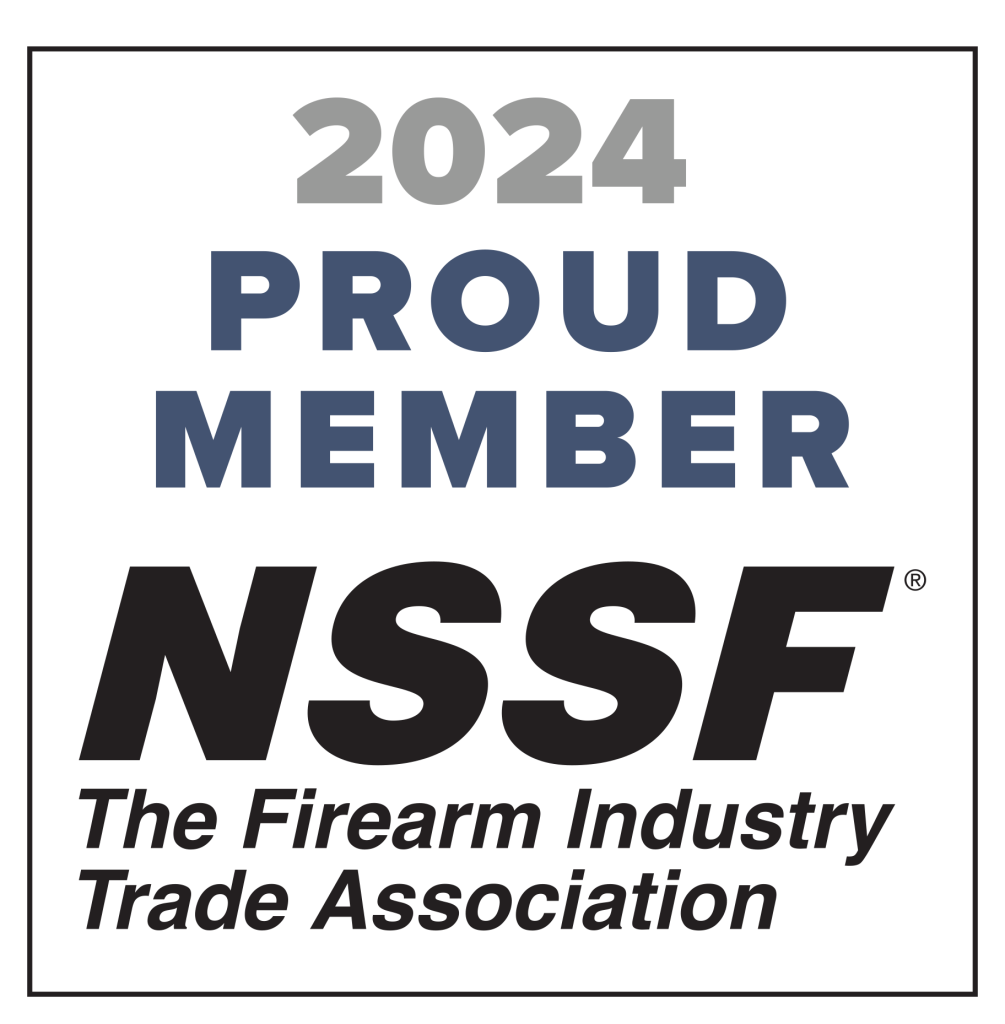
Don’t Lie for the Other Guy
The Bureau of Alcohol, Tobacco, Firearms, and Explosives (ATF) has partnered with the National Shooting Sports Foundation (NSSF) to support these enforcement efforts. The “Don’t Lie for the Other Guy” program educates firearm retailers on how to detect and deter these types of purchases. The program outlines how “convicted felons, minors, persons determined by a court of law to be mentally defective, and certain others are prohibited by law from buying a firearm.” If an individual does commit this crime, they can be subject to 15 years in jail.
Overall, the goal of this program is to reduce the number of straw purchases occurring in gun stores, raise public awareness that straw purchasing is a crime, and alert potential purchasers of the specific legal consequences that result from an illegal straw purchase.
Legal Consequences of Straw Purchasing
Straw purchasing is considered a violation of federal law. Individuals found guilty of making straw purchases can face severe penalties, including being sentenced to state or federal prison for up to 10 years, being classified as committing a felony offense, criminal charges, and having to pay substantial fines of up to $250,000.
Responsibilities of Firearm Dealers
These penalties are designed to punish violators and serve as a strong deterrent against future illegal transactions. Firearm dealers play an important role in preventing straw purchases and they must adhere to strict compliance measures to verify the legitimacy of each transaction. Dealers are required to implement verification processes to ensure that every buyer is allowed to purchase a firearm. This includes conducting NICS background checks and scrutinizing the information provided on the ATF Form 4473, the Firearm Transaction Record. Dealers must be able to recognize signs of suspicious behavior or inconsistent information that may indicate a straw purchase attempt.
Failure to fulfill these responsibilities can result in severe consequences for dealers, such as hefty fines, criminal prosecution, and possible revocation of your Federal Firearms License (FFL). Dealers should also educate their staff on the latest compliance requirements and strategies for identifying potential illegal purchases.
These comprehensive measures are essential for maintaining the integrity of firearm transactions and ensuring that firearms don’t fall into the wrong hands.
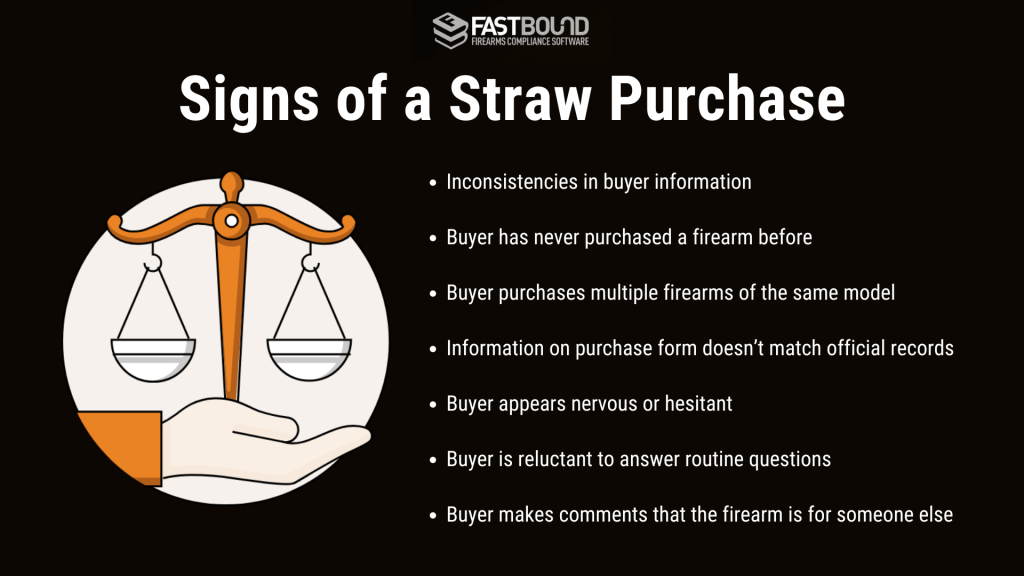
Identifying and Proving a Straw Purchase
Identifying a straw purchase first takes understanding the key indicators that suggest an illegal transaction. Common signs include:
- Inconsistencies in information between the buyer’s identification and their answers on Form 4473.
- The buyer has never purchased a firearm before.
- The buyer is purchasing multiple firearms of the same or similar model.
- False information provided on the purchase form that doesn’t match official records.
- The buyer appears unusually nervous or hesitant during the transaction.
- The buyer is reluctant or unable to answer routine questions about the intended use of the firearm.
- The buyer makes comments that suggest the firearm is intended for someone else.
Background Checks
Criminal background checks are another important tool for catching straw purchases. These checks verify the legal eligibility of a purchaser and can uncover potential red flags that might indicate a prohibited person is attempting to buy a firearm. Thorough background checks involve running through the buyer’s details and ensuring that all provided information is accurate and complete.
Law enforcement agencies also play a role in proving that a straw purchase has occurred. By thoroughly investigating the firearm purchaser, officers can gather evidence that may confirm suspicions of illegal activity. These investigations often involve tracing the firearm back to its original transaction and looking at communication records between the alleged straw purchaser and the actual purchaser.
Accurate Firearm Records
Additionally, maintaining accurate firearms records is essential. These records ensure that dealers can quickly and correctly respond to law enforcement inquiries and trace firearms involved in criminal activities. Accurate and up-to-date record-keeping facilitates easier identification of discrepancies in firearm transactions, which can be indicative of straw purchases.

FastBound’s Help in Maintaining Compliance with ATF Regulations
As a leading software solution in the firearms industry, FastBound provides gun dealers with the resources to remain fully compliant with ATF regulations, ensuring every transaction is conducted legally and with the highest level of safety. We assist dealers in maintaining accurate bound books, a critical component of compliance. By automating the entry and maintenance of these records, we reduce the risk of errors that can occur with manual record-keeping.
FastBound also simplifies the background check process, making selling in multiple states easy and fast. We make sure no prohibited individual can purchase a firearm through lapses in compliance or oversight.
With years of dedicated service and expertise, FastBound has processed more firearm compliance transactions for more FFLs than any other provider. We are committed to upholding the highest standards of compliance and security, which is why many dealers choose FastBound to manage their compliance needs.
Reach out to FastBound today and begin your journey toward hassle-free ATF compliance and enhanced business security!
Resources:
- Bureau of Alcohol, Tobacco, Firearms, and Explosives. https://www.atf.gov/
- Don’t Lie for the Other Guy. https://www.dontlie.org/
- FastBound. https://www.fastbound.com/
- “Stopping Straw Purchases: Firearms Industry, Law Enforcement Work to Make Our Communities Safer.” NSSF. https://www.nssf.org/articles/stopping-straw-purchases-firearms-industry-law-enforcement-work-make-communities-safer/
